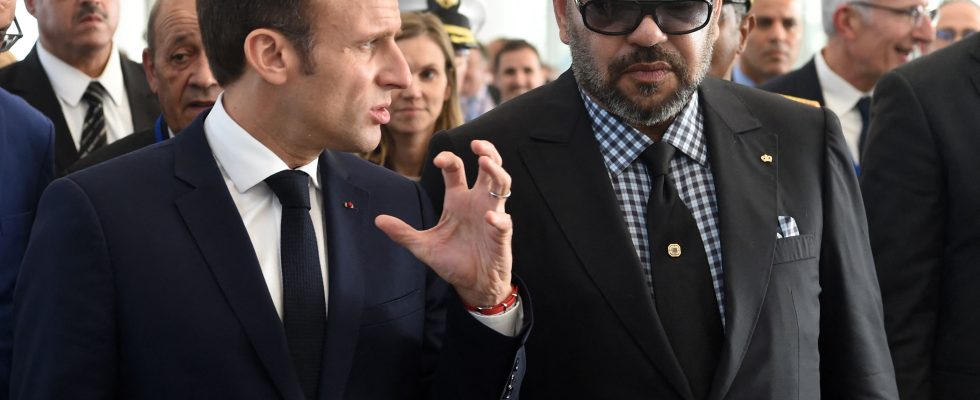You can stay in your Parisian mansion and not seek help from France. We can send thousands of students to the other side of the Mediterranean and not have an ambassador in France for almost six months. We may prefer the help of a Muslim monarchy to the support of its second largest trading partner. This is the privilege of the sovereign, and there is no need for France to “force it”, as the Moroccan media have denounced. “It is no coincidence that Morocco did not want French aid, it is obviously a political gesture calculated to the millimeter”, assures Pierre Vermeren, author of “Morocco in 100 questions” (Ed. Tallandier) and professor of history in Paris 1. In monarchy, everything is a question of symbols. And this one speaks for itself.
France’s position on Western Sahara illegible in Rabat
Seen from Morocco, it is impossible to understand why France persists in wanting to repair its relationship with Algiers, at the risk of sacrificing the one that links it to Rabat. The question of Western Sahara does not lend itself, for Morocco, to any form of concession. In this matter, wanting to go easy on each other is impossible, as Morocco and Algeria have irreconcilable positions.
Regarding this vast desert and disputed area in the south of the country, Rabat’s expectations are unambiguous: either one is in the “friendly” camp, showing its support for the autonomy plan for the region within the framework of Moroccan sovereignty, or one belongs to the “enemy” camp, maintaining good relations with Algeria, which supports the independence activists of the Polisario Front. The other recent episodes – Pegasus affair, visa war, press freedom – have marked an escalation since 2021 which has only weakened the already damaged links.
It is true that relations between the French president and the sovereign Mohammed VI are not the warmest. The two men have not been seen since 2018, despite private trips by Mohammed VI to France. Nor even on the sidelines of a summit. Disputes which, at one time, could have been resolved with a simple visit have caused lasting coldness. The kingdom therefore preferred to tell France that it did not particularly need it. Either. The message is clear: Morocco has the feeling of not being recognized enough as an old friend. Karim Boukhari, editor-in-chief of the Zamane history magazine, is not surprised by the sovereign’s position. “This choice reflects the reality of the Moroccan state’s relationships with its neighbors or partners. With France, there is a stiffening that has been taking place for a while.” It’s up to Paris to act accordingly. But when you are the friend of a king, are you really free to make your choices?
